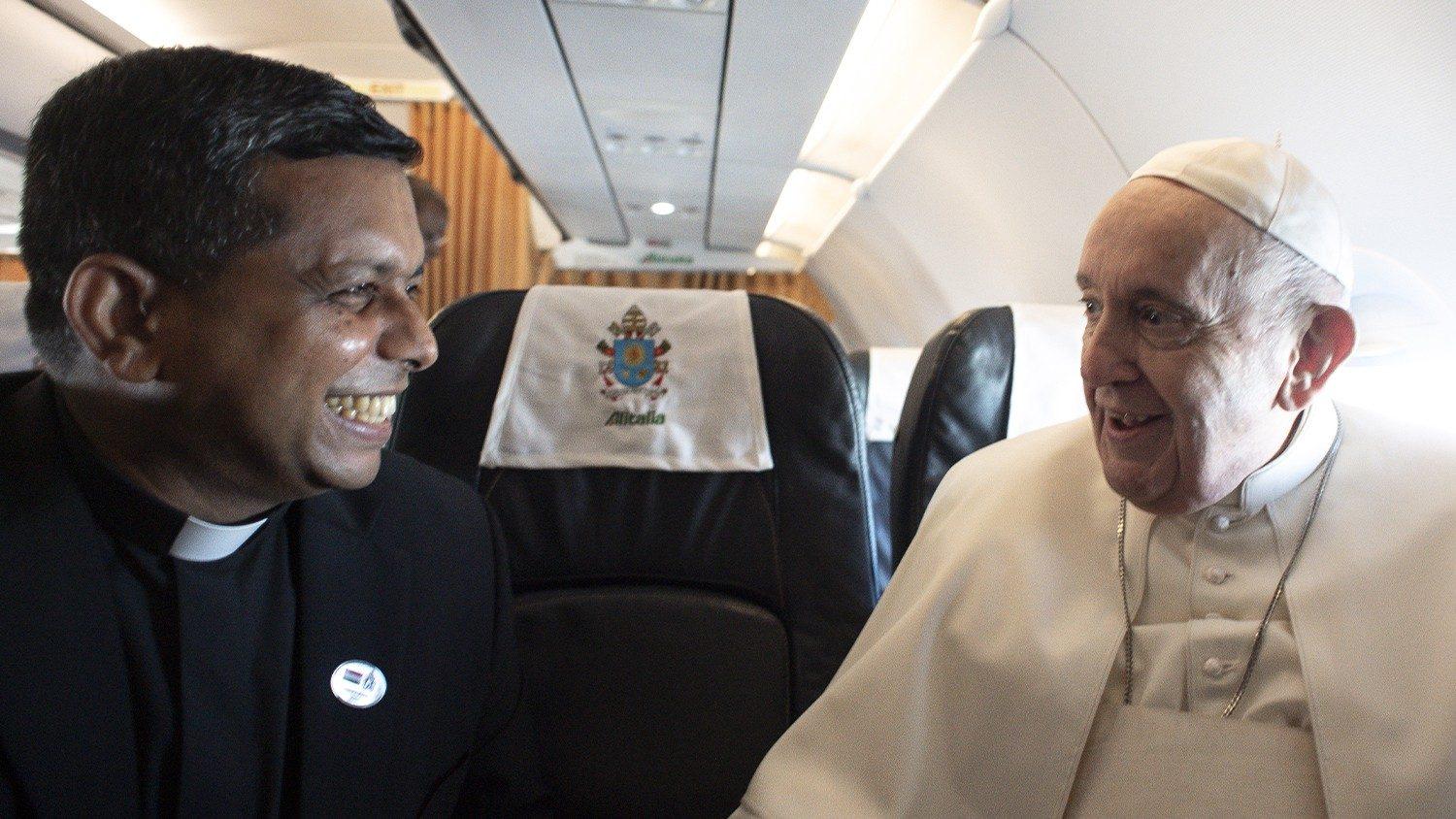MUMBAI, India – One of the youngest cardinals was appointed by Pope Francis to head the Vatican’s Dicastery for Interreligious Dialogue.
Cardinal George Jacob Koovakad, 51, who has been the coordinator for papal travels since 2021 and was made a cardinal in December. He fills the position after the death last year of Miguel Ángel Ayuso Guixot.
Koovakad is from India, and a member of the Eastern Catholic Syro-Malabar Church.
Mar Raphael Thattil, Major Archbishop of the Syro-Malabar Church, gave his “heartiest congratulations, to the cardinal after his appointment.
“There are no words to express our thanks to the Holy Father, for he has selected such a young and energetic cardinal from our Syro-Malabar Church and from India,” he told Crux.
I wish Cardinal George all the best and God’s Blessings in his ministry, a very responsible ministry. God’s Will help him, by God’s gifts of the Holy Spirit so that he can prudently – and effectively and affectionately – know and grow his ministry for the good of the Church,” Thattil said.
Sri Lanka Monsignor Indunil Janakaratne Kankanamalage is the Secretary of the Dicastery for Interreligious Dialogue.
“We are all happy,” he told Crux.
“He brings to office his lived experiences of dialogue from India and wider knowledge and exposure acquired serving in some nunciatures as well as from Apostolic visits. I already worked with him when the South Indian delegation came to the Vatican last November,” he added.
India’s Christians make up only population is only 2.3 percent, but in the state of Kerala – the center of the Syro-Malabar Church – the Christian population is nearly 20 percent, and most of them belong to the Eastern Rite.
However, Hinduism – the dominant religion in India – make up just over half of the population of Kerala and Muslims are over 25 percent of the people.
“I was born and raised in a multicultural and multi-religious society where all religions are respected, and harmony is preserved. Diversity is a richness!” Koovakad told Vatican News.
“I like to emphasize that interreligious dialogue in India is traditionally linked to monasticism. As early as 1600, Jesuit Father Roberto De Nobili adopted the clothing and customs of Indian monks, learned local languages, and sought to assimilate whatever could be valued in these traditions. Such attempts are not without risks, though, as the Pope teaches us, stepping out and moving forward always carries risks,” the cardinal said.
“But what I want to highlight is this attitude of openness, sympathy, and closeness to other traditions. Christian faith is capable of inculturation: Christians are called to be seeds of fraternity for all. This does not mean giving up one’s identity but rather being aware that identity should never be a reason to build walls or discriminate against others. Instead, it should always be an opportunity to build bridges,” he added.
“Interreligious dialogue is not simply a dialogue between religions but between believers called to bear witness to the beauty of believing in God and practicing fraternal charity and respect,” he said.
He confessed to Vatican News the thought of his new role fills him with “great trepidation and a sense of inadequacy.”
“At the same time, I rely heavily on the prayers of all those who continue to dream of a world where religious differences not only coexist peacefully but become essential elements in building peace among peoples,” Koovakad said.
“I trust in the guidance of the Holy Father and in the path already wisely traced by those who preceded me. Above all, I rely on the help of the Dicastery’s collaborators, whom I have met [since his appointment] and who have already welcomed me with friendship and made me feel at home,” the cardinal said.
Indian Father Santiago Michael, who serves at the Dicastery for Interreligious Dialogue, said Koovakad is “an amiable person and has love for the Church and for the works that the Holy Father has entrusted to him.”
I am sure, his travel experiences with the Holy Father and interactions with people from diverse walks of life, including leaders from different religious traditions, will be of great help in his new assignment as Prefect of the Vatican Dicastery for Interreligious Dialogue,” the priest told Crux.
In his interview with Vatican News, Koovakad also acknowledged his work on papal journeys were helpful, since they “almost always have interreligious dimensions, encounters with authorities of other faiths, and moments of lived fraternity.”
“I believe the experience I have gained and will continue to gain in the Journeys Office has been and will remain valuable,” the cardinal said.
“Likewise, I hope my service in Apostolic Nunciatures in Algeria, South Korea, and Iran will be helpful,” he added.
This piece has been corrected.












